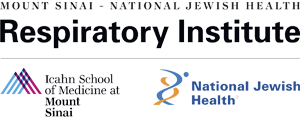Treatments for Sarcoidosis
The Sarcoidosis Program specializes in treating patients with complex cases of sarcoidosis that cause persistent symptoms. Our physicians will recommend appropriate measures based on where in the body the disease is present, and the severity of the condition.
Our Program’s doctors partner with our sarcoidosis patients to determine the best treatment plan, which could range from an evaluation to track the illness’ status to medications that help control symptoms. Prednisone is the most effective medication for the treatment of sarcoidosis, but it may have debilitating side effects when used on a long-term basis. Our physicians are skilled in using a growing number of alternatives, including immunomodulatory medications. Prescription drops and creams can be used for eye and skin involvement, while inhaled drugs may help with some forms of lung involvement.
In rare cases, definitive treatment may be required in the form of organ transplantation. Mount Sinai can perform liver and heart transplantation for sarcoidosis, and can evaluate patients’ potential need for lung transplantation.
Our physicians maintain follow-up exam schedules with patients to track the status of the disease and the effectiveness of the treatments. At least 50 percent of patients with sarcoidosis experience remission without any treatment and 25 percent will experience remission with treatment. The remaining 25 percent will have chronic sarcoidosis (our doctors specialize in treating these chronic cases).
